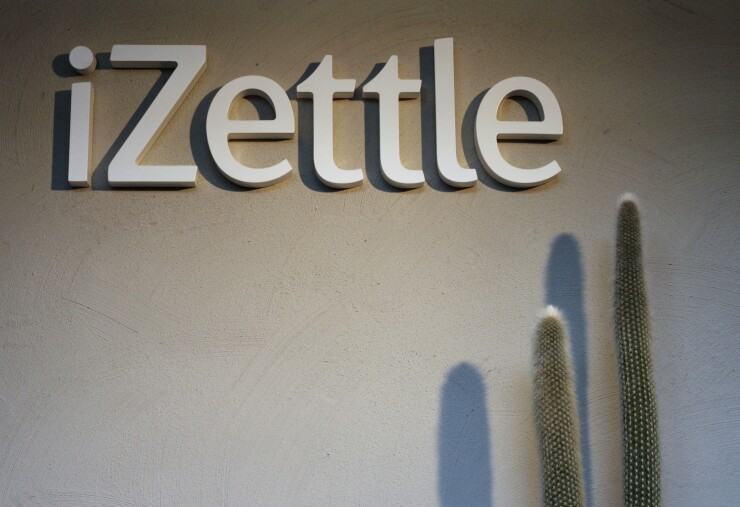Often thought of as the Square of Europe, iZettle is working to sprint ahead of its American rival.
Square's deal to buy Weebly, announced last week, targets the same market that iZettle serves with

"The card reader in its current form will be obsolete in the not too distant future … but with that said, card payment is still the fastest-growing payment method globally," said Leo Nilsson, chief product officer for iZettle.
It's not too early to get merchants thinking about how to expand their businesses and get the card-payment world to connect with digital payments and shopping. In fact, the timing likely couldn't be better.
In launching its
"This product is mainly aimed at retail merchants, and retail is our largest user segment," Nilsson said. "However, omnichannel commerce is becoming increasingly relevant for all merchant types as food and drink has pickup and delivery and services have online bookings."
It all helps iZettle help merchants become well-positioned "to meet their customers anywhere, leveling the playing field for the aspiring entrepreneur," Nilsson added.
Over time, iZettle has developed the look and feel of full-service payments technology provider. In addition to electronic payments, the company offers the iZettle Go app, which converts smartphones or tablets into a POS system, bringing an array of API interfaces, an activity dashboard, customer-relationship management integrations, calendar management, reporting features and templates, the ability to import and export data, establish real-time reporting and statistics, and an easier third-party integration. The Go app will integrate with the new e-commerce platform.
"All such companies are working to diversify into e-commerce, as the basic payment services are commoditized," Ron van Wezel, an Amsterdam-based senior analyst at Aite Group.
These types of companies are watching technology such as
As such, many of the companies are starting to look alike.
"I think what iZettle is doing with Go, is already being done by Square, PayPal and others," van Wezel added. "It's a necessity to compete in this space."
iZettle isn't likely to stand pat with its current offerings, however. The company is watching artificial intelligence, blockchain and cryptocurrency development closely. In fact, iZettle received 30 million euros in funding from the European Investment Bank to do research in the AI field over the next three years.
"A good way to think about AI-based technologies is to consider what services would become cheaper when the technology is applied," Nilsson said. "Machine learning will lower the cost of prediction and, by extension, automation."
It would open an opportunity to empower merchants with services previously unavailable to them — such as access to advanced tools in operational areas like inventory planning or growth areas like marketing, Nilsson added.
"It is a natural progression to move from m-POS to a more complete set of payments and business tools," said Zil Bareisis, a London-based senior analyst for the research firm Celent. "The hardware reader is a fairly commoditized offering and on its own doesn’t address the needs of many merchants who are looking to combine physical and online sales."





